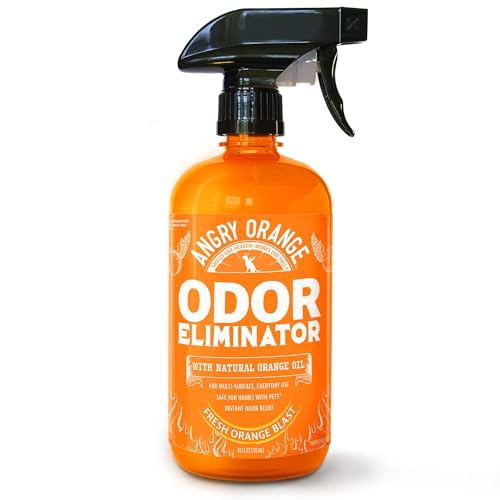Reasons why cats may smell bad
Reasons Why Cats May Smell Bad
We understand that as a cat lover, you want your feline friend to be clean and fresh-smelling. However, sometimes cats can have a less than pleasant odor. Here are a few reasons why cats may smell bad:
- Poor grooming habits: Cats are known for their cleanliness, but sometimes they may neglect their grooming routine. This can result in a build-up of dirt, oils, and bacteria on their fur, leading to an unpleasant smell. Certain factors, such as obesity or arthritis, can make it challenging for cats to groom themselves effectively.
- Dental problems: Just like humans, cats can develop dental issues like gum disease, tooth decay, and infections. These oral health problems can cause bad breath and contribute to an unpleasant smell. Regular dental care, including brushing your cat’s teeth, can help prevent these issues.
- Urine and litter box issues: Cats are meticulous creatures that prefer to have a clean litter box. If the litter box is not cleaned regularly or if it has an unpleasant odor, your cat may avoid using it, leading to accidents outside the box. Additionally, urinary tract infections or other medical conditions can cause a foul-smelling urine that can linger on your cat’s fur.
- Skin infections or allergies: Cats can develop skin infections or allergies that result in an unpleasant odor. These conditions might be caused by parasites, such as fleas or mites, or by allergic reactions to certain foods or environmental triggers. Regular check-ups with your veterinarian can help identify and treat these issues.
- Anal gland problems: Cats have small scent glands located near their rectum, which can occasionally become impacted or infected. This can cause a strong, fishy odor. If you notice your cat excessively licking their bottom or scooting on the floor, it may be an indication of anal gland problems that require veterinary attention.
While cat smells can sometimes be an indication of an underlying health issue, it’s important to note that some mild odor is natural for cats. Regular grooming, dental care, and maintaining a clean litter box can help keep your cat smelling fresh. If you notice a persistent and strong odor, it’s always a good idea to consult with your veterinarian to rule out any underlying problems.
Remember, understanding why cats may smell bad can help you take the necessary steps to keep your furry friend clean and odor-free.
Common causes of odor in cats
As a cat lover and enthusiast, you know how important it is for your furry friend to smell fresh and clean. However, sometimes cats can develop unpleasant odors that may not be so enjoyable to be around. Don’t worry though, there are common causes of these smells and ways to address them. Here are a few reasons why cats may have an odor:
- Lack of grooming: Cats are known for their self-grooming abilities, but sometimes they may not do a thorough job. This can lead to a buildup of dirt, oils, and dead skin cells, resulting in an unpleasant smell. Regular brushing and occasional baths can help keep your cat smelling fresh.
- Dental problems: Just like humans, cats can experience dental issues such as plaque and tartar buildup, gum disease, or infected teeth. These problems can cause bad breath, which can contribute to an overall unpleasant odor. Regular dental care, including brushing your cat’s teeth or providing dental treats, can improve their oral hygiene.
- Urine and litter box issues: Cats are very clean animals by nature, and they prefer to have a clean litter box. If the litter box is not cleaned regularly or the litter is not changed often enough, it can lead to a strong odor in your home. Ensuring a clean and well-maintained litter box will help prevent any foul smells.
- Skin infections or allergies: Cats can develop skin infections or allergies, which can produce a distinctive odor. These conditions can be caused by fleas, mites, allergies to certain foods or environmental factors, or even fungal infections. Regular vet check-ups and proper treatment can help manage these issues and keep your cat smelling fresh.
- Anal gland problems: Cats have anal glands located near their rectum that produce a scent. Sometimes these glands can become blocked or infected, leading to a strong, unpleasant odor. If you notice your cat constantly licking their hind area or emitting a foul smell, it’s important to consult with a veterinarian.
Remember, regular grooming and dental care, maintaining a clean litter box, and being proactive about your cat’s health are key to preventing and addressing any unpleasant odors. However, if the odor persists or becomes particularly strong, it’s always a good idea to seek advice from a veterinarian to rule out any underlying health issues.
Importance of regular grooming
Grooming plays a crucial role in maintaining the well-being of your furry feline friend. Regular grooming not only helps to keep your cat looking their best, but it also contributes to their overall health and happiness. Here’s why grooming is so important for your beloved cat:
1. Maintaining a Clean and Healthy Coat
Regular grooming helps to keep your cat’s coat clean, shiny, and free from mats or tangles. As they groom themselves, cats often ingest loose fur, which can lead to hairballs. By regularly brushing your cat’s fur, you can help prevent the accumulation of loose fur and minimize the occurrence of hairballs. It also allows you to check for any skin irritations, fleas, or ticks that may be lurking underneath their coat.
2. Preventing Dental Problems
While grooming your cat, it’s essential to pay attention to their dental hygiene as well. Dental problems, such as plaque buildup, gum disease, and tooth decay, can cause bad breath and discomfort for your furry friend. By regularly brushing their teeth and providing dental treats, you can help prevent these issues and ensure that your cat has fresh breath and a healthy mouth.
3. Bonding with Your Cat
Grooming is not just about maintaining physical health; it’s also an excellent opportunity to strengthen the bond between you and your cat. Cats enjoy the attention and affection they receive during grooming sessions, as it mimics the grooming behavior they would receive from their mother or littermates. Regular grooming can be a calming and intimate experience that deepens the emotional connection between you and your feline companion.
4. Detecting Health Issues Early
During grooming sessions, you have the chance to observe your cat up close and detect any changes in their body or behavior. By regularly checking their eyes, ears, nose, and other body parts, you can identify any signs of illness, infection, or injury at an early stage. Catching these issues early can help prevent them from developing into more significant problems and ensure that your cat receives prompt veterinary care when needed.
Regular grooming is an essential aspect of responsible cat ownership. It helps to maintain a clean and healthy coat, prevents dental problems, strengthens the bond between you and your cat, and allows you to detect potential health issues early. By incorporating grooming into your cat’s routine, you’re not only keeping them looking and smelling fresh, but you’re also ensuring their overall well-being and happiness.
Tips for keeping your cat clean and smelling fresh
As a cat lover, you want your furry friend to be clean and smelling fresh. Here are some helpful tips for keeping your cat well-groomed:
- Brush your cat regularly: Regular brushing not only helps to remove loose hair and prevent matting, but it also helps to distribute natural oils and keep the coat shiny and healthy. Plus, it’s a great way to bond with your feline companion!
- Provide a litter box: A clean litter box is essential for maintaining your cat’s hygiene. Scoop the litter box daily and change the litter regularly to keep it fresh and odor-free.
- Bathe your cat when necessary: Most cats do a good job of self-grooming, but there may be times when a bath is necessary. Use a cat-specific shampoo and warm water to gently clean your cat, being careful to avoid their face and ears. Remember, not all cats enjoy baths, so be patient and make it a positive experience.
- Keep their ears clean: Cats can be prone to ear infections and build-up of dirt and wax. Check your cat’s ears regularly and clean them gently using a damp cotton ball or a veterinarian-recommended ear cleaner.
- Trim their nails: Regular nail trims are important for your cat’s comfort and preventing damage to furniture and carpets. Use cat-specific nail clippers and be careful not to cut the quick (the pink area inside the nail).
- Maintain oral hygiene: Just like humans, cats can develop dental issues. Brush your cat’s teeth regularly with a cat-specific toothbrush and toothpaste to prevent dental diseases and keep their breath fresh.
- Provide a clean and comfortable sleeping area: Cats spend a lot of time sleeping, so it’s important to provide them with a clean and cozy bed. Wash their bedding regularly to keep it fresh and comfortable.
Remember, keeping your cat clean and smelling fresh not only helps them look their best, but it also contributes to their overall health and well-being. Incorporate these grooming tips into your routine and enjoy a happy and fresh-smelling cat!
Summary:
The role of diet in cat odor
As a cat lover, you know that our feline friends bring joy and companionship to our lives. But sometimes, you might notice that they have a bit of an odor. One factor that can contribute to cat odor is their diet.
What your cat eats plays a significant role in their overall scent. Certain foods can create stronger, less pleasant odors in their waste and even on their coat. To keep your cat smelling fresh and clean, it’s important to pay attention to their diet.
- High-quality cat food: Opt for high-quality cat food that is formulated with a balance of essential nutrients. Look for options that list real meat as the primary ingredient and avoid foods with artificial additives or fillers. A nutritious diet can contribute to a healthier coat and less noticeable odor.
- Proper hydration: Make sure your cat has access to fresh water at all times. A well-hydrated cat will have a healthier coat and their body will process waste more efficiently, which can help reduce odor.
- Avoid table scraps: While it might be tempting to share your meal with your furry friend, it’s best to avoid feeding them table scraps. Human food can cause gastrointestinal issues in cats, leading to unpleasant odors.
- Regular feeding schedule: Establish a regular feeding routine for your cat. Consistency in meal times can help regulate their digestion and prevent any stomach upset that could lead to odor.
- Consider specialized diets: If you’re concerned about your cat’s odor, consult with your veterinarian about specialized diets or supplements that can help manage particular odor issues.
Remember, each cat is unique, and what works for one may not work for another. It’s always a good idea to consult with your veterinarian for personalized advice and recommendations based on your cat’s specific needs.
By paying attention to your cat’s diet and making conscious choices, you can help minimize any unpleasant odors they may have. A healthier diet not only contributes to their overall well-being but also helps keep them smelling fresh and clean.
Conclusion
By following these tips, you can ensure that your furry friend stays fresh and odor-free. Remember, a cat’s diet plays a crucial role in their overall scent, so it’s important to feed them high-quality cat food and provide them with proper hydration. Avoid giving them table scraps, as this can contribute to unpleasant smells. Establishing a regular feeding schedule will also help regulate their digestion and minimize any potential odor. Additionally, considering specialized diets or supplements can further support your cat’s overall well-being and help reduce any potential odor issues. Remember, every cat is unique, so it’s always a good idea to consult with your veterinarian for personalized advice and recommendations. With a little effort and care, you can keep your cat smelling fresh and clean, ensuring a pleasant environment for both you and your furry companion.
Frequently Asked Questions
Q: How can I keep my cat smelling fresh?
A: To keep your cat smelling fresh, feed them high-quality cat food, provide fresh water daily, avoid giving table scraps, establish a regular feeding schedule, and consider specialized diets or supplements if necessary. Consulting with a veterinarian can also help determine the best approach for your cat’s specific needs.
Q: What role does diet play in cat odor?
A: Diet plays a significant role in cat odor. Feeding high-quality cat food can improve the overall health of your cat, which can help reduce body odor. Additionally, ensuring your cat is properly hydrated through fresh water intake can also help prevent strong-smelling urine. Avoiding table scraps can prevent digestive issues that may contribute to unpleasant odors. If needed, specialized diets or supplements recommended by a veterinarian can address specific odor concerns.

















